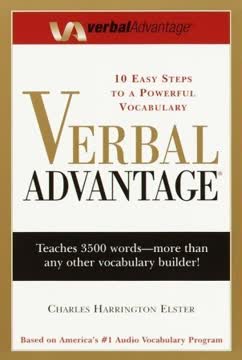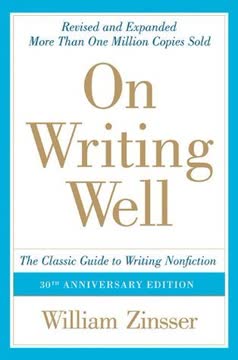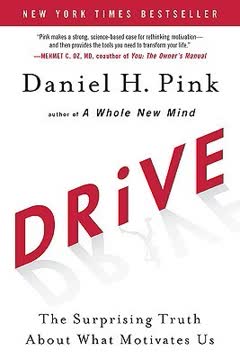Key Takeaways
1. Vocabulary Building: A Lifelong Journey
Throughout the Verbal Advantage program I will be your personal guide on a tour of the English language, a tour that I guarantee will help you improve your word power dramatically and permanently.
Commitment and Consistency. Building a powerful vocabulary is not a quick fix but a continuous process of self-education. It requires dedication, routine, repetition, and review. Think of it as an intellectual conditioning program for your mind, where consistent effort yields lasting results.
Vocabulary and Success. Numerous studies have shown a correlation between career and financial success and an above-average vocabulary. A strong command of language enhances communication skills, improves clarity, and boosts confidence, opening doors to new opportunities and achievements. As William Raspberry put it, "Good English, well spoken and well written, will open more doors than a college degree... Bad English will slam doors you don’t even know exist."
Verbal Advantage as a Tool. This program is designed to boost your vocabulary and enhance your verbal skills, but it's just the beginning. Think of it as a foundation for a lifelong process of self-improvement. The responsibility for keeping your verbal tools sharp ultimately lies with you.
2. The Power of Reading: A Primary Method for Vocabulary Growth
If you wish to continue to build your vocabulary after completing this program—in fact, if you want to retain the words you know right now—you must start reading more, reading widely, and reading something—even if it’s just a few pages at first—every single day.
Reading Widely. To build a powerful vocabulary, it's essential to read widely and consistently. Newspapers, magazines, and books offer exposure to new words and concepts. The key is to choose materials with an eye toward building your knowledge of words.
Strategic Reading. While newspapers are a good start, they often use elementary language. Instead, focus on well-written publications like The New York Times, The Wall Street Journal, or weekly news magazines. Also, explore sections like theater, book, and movie reviews, which tend to use more challenging vocabulary.
Active Engagement. Make a conscious effort to identify unfamiliar words while reading. Keep a dictionary handy to look up words immediately, or highlight them for later review. This active engagement with the text is crucial for rapid and permanent vocabulary growth.
3. The Dictionary Habit: A Cornerstone of Verbal Advantage
You learn more words by learning more about words.
Essential Tool. A dictionary is an indispensable resource for anyone serious about building a powerful vocabulary. It's more than just a list of definitions; it's a comprehensive guide to language, including pronunciation, etymology, grammar, and usage.
Choosing the Right Dictionary. Invest in at least two hardcover dictionaries: an unabridged edition for home and a desk dictionary for the office. Unabridged dictionaries offer a wealth of information, while desk dictionaries are more convenient for everyday use.
Reading a Dictionary Entry. When looking up a word, pay attention to pronunciation, part of speech, etymology, and all the definitions. Don't skip over any information. Also, explore usage notes and synonym studies to gain a deeper understanding of the word's nuances.
4. Usage vs. Abusage: Navigating the Nuances of Language
Use the right word, and not its second cousin.
Precision in Language. Using words properly and precisely is crucial for effective communication. It's important to distinguish between usage and "abusage," or the misuse of language. Understanding how usage changes, why it changes, and which changes are accepted is key.
Common Errors. Even educated individuals make errors of grammar, diction, and pronunciation. Learning to avoid these mistakes is essential for achieving a verbal advantage. This includes eliminating redundancies, distinguishing between commonly misused words, and avoiding confusing words.
The Importance of Rules. There are good rules and bad rules in language. Striking a balance between current standard usage and what seems natural and correct is essential. Developing a keen ear for language and a critical eye for writing will help you navigate these complexities.
5. Pronunciation: The Audible Dimension of Word Mastery
If you have taken the time to learn the meaning of a word and how to use it properly, then why not also learn how to pronounce it correctly?
Completing the Verbal Picture. Building an impressive vocabulary is only half the battle. Learning how to pronounce words correctly is equally important. Mispronouncing words can undermine your credibility and make you appear uneducated, no matter how intelligent you are.
Avoiding Mispronunciations. Not only should you learn the proper pronunciation of new words, but you should also correct any mispronunciations of familiar words. This requires a conscious effort to improve your speech and avoid common errors.
Techniques for Improvement. By paying attention to how others speak, consulting dictionaries, and understanding diacritical marks, you can continuously improve your pronunciation skills. This will enhance your ability to communicate effectively and confidently.
6. Level 1: Laying the Foundation
You learn more words by learning more about words.
Graduated Learning. The Verbal Advantage program is designed to build your vocabulary in ascending order of difficulty. Level 1 introduces keywords familiar to many high school and college graduates, providing a solid foundation for more advanced learning.
Key Concepts. Level 1 covers essential concepts such as paraphrasing, ostensible meanings, digressing, candor, and pragmatism. It also explores the importance of candor, the definition of morose, and the meaning of being adept.
Usage and Pronunciation. Level 1 also addresses common mispronunciations and redundancies, such as "Realtor" and phrases like "big in size." It emphasizes the importance of routine, repetition, and review for effective vocabulary building.
7. Level 2: Building Upon the Basics
It is the ability to feel a fine distinction such as this and to choose the word that precisely expresses the thought that marks the writer of competence and taste.
Vocabulary and Reading. Reading widely is crucial for vocabulary development. Newspapers, magazines, and books offer exposure to new words and concepts. The key is to read with a dictionary and actively look for unfamiliar words.
Key Concepts. Level 2 introduces words such as advocate, delegate, unprecedented, poignant, nebulous, and clandestine. It also explores the importance of understanding the nuances of words like recur and tacit.
Usage and Pronunciation. Level 2 addresses common usage errors, such as ending sentences with prepositions, and provides guidance on proper pronunciation. It emphasizes the importance of making fine distinctions in word choice to enhance clarity and precision.
8. Level 3: Tackling Tricky Terms
Words are the instruments of thought by which men and women grasp the thoughts of others, and with which they do most of their thinking.
The Dictionary Habit. Developing a "dictionary habit" is essential for vocabulary mastery. Regularly consulting a dictionary, both when reading and writing, will help you avoid errors and use language with precision.
Key Concepts. Level 3 introduces words such as defray, taciturn, terse, boon, proletariat, heterogeneous, and pittance. It also explores the importance of understanding the connotations of words like glib and penchant.
Usage and Pronunciation. Level 3 addresses the proper use of words like verbal and verbiage, and provides guidance on avoiding common mispronunciations. It emphasizes the importance of understanding etymology to enhance vocabulary development.
9. Level 4: Delving Deeper into Diction
Words are the tools of thought, and it follows that if your tools aren’t the sharpest ones in the shed, you can’t expect to have an edge in the struggle for success.
Reading and Vocabulary. To continue building your vocabulary, you must read more, read widely, and read something every single day. This requires discipline and a conscious effort to seek out challenging words.
Key Concepts. Level 4 introduces words such as provident, impute, astute, neophyte, enigma, credence, and venerate. It also explores the importance of understanding the nuances of words like garrulous and trenchant.
Usage and Pronunciation. Level 4 addresses the proper use of words like lie and lay, and provides guidance on avoiding common mispronunciations. It emphasizes the importance of understanding the difference between denotation and connotation.
10. Level 5: Cultivating a Refined Verbal Palate
Words are the tools of thought, and it follows that if your tools aren’t the sharpest ones in the shed, you can’t expect to have an edge in the struggle for success.
The Importance of Pronunciation. Not only should you learn the precise meaning and proper use of words, but you should also learn how to pronounce them correctly. This will enhance your credibility and make you a more effective communicator.
Key Concepts. Level 5 introduces words such as voluble, commiserate, dilemma, transitory, philanthropic, and lethargy. It also explores the importance of understanding the nuances of words like exonerate and pugnacious.
Usage and Pronunciation. Level 5 addresses the proper use of words like sensual and sensuous, and provides guidance on avoiding common mispronunciations. It emphasizes the importance of understanding the difference between lay and lie.
11. Level 6: Mastering Advanced Vocabulary
Only about 3,500 words separate the high vocabulary person from the low. Yet these 3,500 words can mean the difference between success and failure.
Vocabulary and Success. A strong vocabulary is a key to success, but wealth is not the only yardstick. What matters is your career, what you do and how well you do it, and also your personal development, how you can make the most of your natural abilities and achieve your goals in life.
Key Concepts. Level 6 introduces words such as legerdemain, puerile, complicity, transmute, abstruse, and edify. It also explores the importance of understanding the nuances of words like supercilious and dissemble.
Usage and Pronunciation. Level 6 addresses the proper use of words like verbal and oral, and provides guidance on avoiding common mispronunciations. It emphasizes the importance of understanding the difference between denotation and connotation.
12. Level 7: The Art of Discriminating Usage
You learn more words by learning more about words.
The Importance of Review. Effective vocabulary building begins with establishing a routine and sticking to it. You should read Verbal Advantage for a set amount of time every day, preferably at least thirty minutes.
Key Concepts. Level 7 introduces words such as redress, anomalous, obsequious, didactic, truncate, and abstemious. It also explores the importance of understanding the nuances of words like ethereal and bombastic.
Usage and Pronunciation. Level 7 addresses the proper use of words like lay and lie, and provides guidance on avoiding common mispronunciations. It emphasizes the importance of understanding the difference between denotation and connotation.
Last updated:
FAQ
What is Verbal Advantage: 10 Steps to a Powerful Vocabulary by Charles Harrington Elster about?
- Comprehensive vocabulary program: The book is a structured, ten-level program designed to systematically expand your English vocabulary, moving from common to advanced words.
- Emphasis on precision and usage: It teaches not just definitions, but also correct pronunciation, usage, and how to avoid common language errors.
- Holistic language development: The program includes quizzes, review sections, and mnemonic devices to reinforce learning and ensure long-term retention.
- Focus on lifelong learning: Elster encourages readers to view vocabulary building as an ongoing intellectual pursuit, akin to training for a sport.
Why should I read Verbal Advantage by Charles Harrington Elster?
- Vocabulary linked to success: The book cites research showing a strong correlation between a powerful vocabulary and career, financial, and personal success.
- Improves all communication skills: It helps readers speak, write, and listen with greater clarity, confidence, and style, which is valuable in both professional and personal contexts.
- Avoids common language pitfalls: Elster addresses frequent errors in pronunciation, grammar, and diction, helping readers avoid embarrassment and improve credibility.
- Lifelong impact: The program is designed for lasting results, making vocabulary growth a habit that continues to benefit readers throughout their lives.
What are the key takeaways from Verbal Advantage by Charles Harrington Elster?
- Structured, graduated learning: Vocabulary is introduced in ten ascending levels, each with carefully selected keywords, synonyms, antonyms, and etymologies.
- Precision and clarity: The book stresses the importance of using the right word in the right context, avoiding vague, trendy, or misused language.
- Active practice and review: Regular quizzes and review tests are built in to reinforce learning and move words from passive to active vocabulary.
- Cultivated speech: Elster defines and promotes the idea of becoming a “cultivated speaker” through refined pronunciation and usage.
How is vocabulary structured and taught in Verbal Advantage by Charles Harrington Elster?
- Ten progressive levels: Words are introduced in order of increasing difficulty, starting with those known by most adults and advancing to rare, sophisticated terms.
- Keyword focus: Each level centers on essential “keywords,” with detailed explanations, example sentences, and related words to deepen understanding.
- Integrated pronunciation and usage: Every word includes pronunciation guidance, usage notes, and advice on avoiding common errors.
- Reinforcement through quizzes: After each set of keywords, quizzes and review tests help solidify knowledge and track progress.
What are the “three R’s” of verbal development recommended in Verbal Advantage by Charles Harrington Elster?
- Routine: Establish a daily habit of studying vocabulary, ideally dedicating at least 30 minutes each day for consistent progress.
- Repetition: Revisit challenging words and material multiple times to reinforce memory and understanding, as repetition is key to mastery.
- Review: Use the built-in quizzes and review tests to assess retention and identify areas needing further study before advancing to new material.
How does Verbal Advantage by Charles Harrington Elster recommend using dictionaries for vocabulary building?
- Own and consult multiple dictionaries: Elster suggests having at least two dictionaries (one at home, one at work) and using them frequently to check meanings and pronunciations.
- Read all definitions and etymologies: Don’t stop at the first definition; explore all meanings and the word’s origin to deepen understanding and memory.
- Pay attention to usage notes: Use the style and usage notes in dictionaries to learn about proper word use, punctuation, and grammar, enhancing overall language mastery.
What is the role of reading in vocabulary growth according to Verbal Advantage by Charles Harrington Elster?
- Primary method for growth: Reading widely and regularly is the most effective way to build and maintain a powerful vocabulary beyond the book’s program.
- Choose challenging materials: Elster recommends reading well-written newspapers, magazines, and books outside your specialty to encounter new and diverse words.
- Look up unfamiliar words: Use a dictionary while reading to ensure precise understanding and prevent “reading around” unknown words, which hinders vocabulary expansion.
What are common usage myths and errors addressed in Verbal Advantage by Charles Harrington Elster?
- Ending sentences with prepositions: The book debunks the myth that this is always incorrect, citing authorities who defend idiomatic usage.
- Misuse of “comprise”: Elster clarifies that “comprise” means “to include,” not “to make up,” and provides correct usage examples.
- Confusion between similar words: The book explains distinctions such as “lay” vs. “lie,” “disinterested” vs. “uninterested,” and “anxious” vs. “eager,” promoting precise usage.
How does Verbal Advantage by Charles Harrington Elster address pronunciation challenges and mispronunciations?
- Traditional vs. modern pronunciations: The book explains the history of pronunciations and advocates for preserving traditional, cultivated forms.
- Common mispronunciations: Elster highlights frequently mispronounced words, providing correct pronunciations and explaining why certain variants are incorrect.
- Understanding pronunciation keys: The book teaches how to interpret dictionary pronunciation guides, including stress marks and diacritical symbols, to ensure accuracy.
What is “abusage” and how does Verbal Advantage by Charles Harrington Elster categorize language misuse?
- Definition of abusage: Abusage refers to the misuse or abuse of language, including errors, poor diction, and incorrect grammar that detract from clarity and style.
- Five categories: The book identifies vogue words (overused trendy words), jargon (pretentious or specialized language), adverbiage (awkward adverb use), catchphrases (worn-out expressions), and redundancy.
- Impact on communication: Elster explains how these forms of abusage weaken language and advises readers to choose precise, clear, and forceful words.
What are some advanced vocabulary words and concepts explained in Verbal Advantage by Charles Harrington Elster?
- Challenging words with context: Examples include “machination” (a crafty plot), “docile” (submissive), “redoubtable” (formidable), “prognosticate” (to predict), and “nepotism” (favoritism to relatives).
- Etymology and related words: Each word is accompanied by its Latin or Greek roots, with related words to build a network of vocabulary around a concept.
- Usage and pronunciation tips: The book provides example sentences, correct pronunciations, and common pitfalls for each advanced word.
What are the best quotes from Verbal Advantage by Charles Harrington Elster and what do they mean?
- On language mastery: “Good English, well spoken and well written, will open more doors than a college degree.” This highlights the power of language in achieving success.
- On vocabulary and thought: “Words are the instruments of thought by which men and women grasp the thoughts of others, and with which they do most of their thinking.” (Johnson O’Connor) This underscores vocabulary’s role in cognition and communication.
- On word choice: “Use the right word, and not its second cousin.” (Mark Twain) This advises precision in word selection for clarity and impact.
- On vogue words and jargon: “Jargon is the worm in the apple of expression; it is the refuge of the timid writer and the smokescreen of the self-important one.” This warns against using trendy or obscure language that weakens communication.
Review Summary
Verbal Advantage receives overwhelmingly positive reviews, with readers praising its effectiveness in expanding vocabulary and improving language skills. Many appreciate the author's engaging writing style, witty explanations, and comprehensive approach. Readers often report reading the book multiple times and using it as a long-term reference. Some highlight the book's impact on their reading comprehension, writing, and speaking abilities. While a few find it challenging or pretentious, most consider it an invaluable resource for language enthusiasts and those seeking to enhance their verbal skills.
Similar Books
Download PDF
Download EPUB
.epub digital book format is ideal for reading ebooks on phones, tablets, and e-readers.














